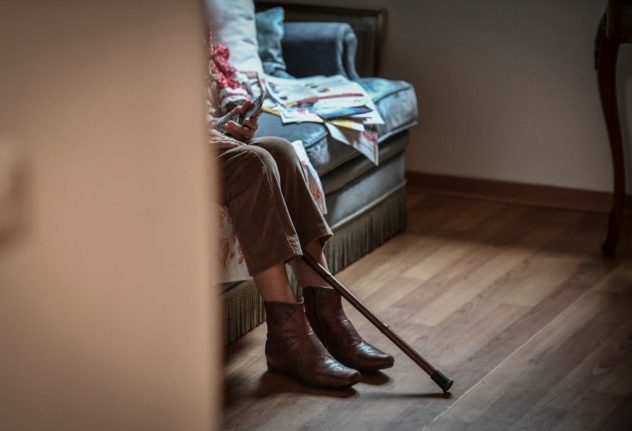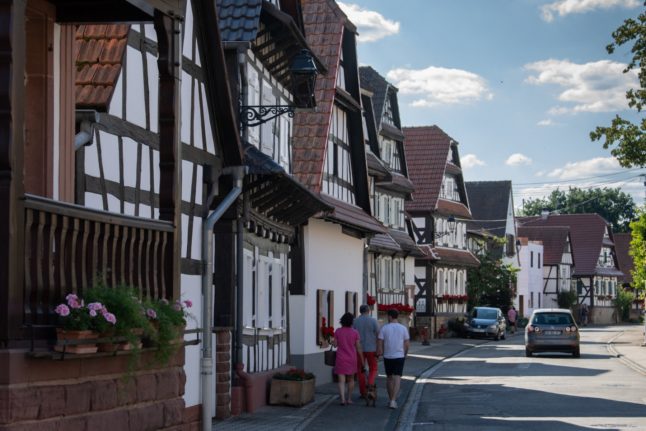According to a recent survey in France, the vast majority of retired people expressed a desire to stay in their homes long-term, rather than entering a care facility.
While there are several schemes by the French government to provide assistance for renovating homes in order to make them more accessible for elderly people, the newly announced “MaPrimeAdapt” seeks to streamline the process.
When was it announced?
MaPrimeAdapt was part of President Emmanuel Macron’s re-election campaign, with plans for it first announced by the president last November.
Most recently, the government aid was earmarked to receive funding in the upcoming 2023 budget, which also hopes to increase the number of nursing home employees, as well as boost public funding for care centres.
The budget is set to allocate €35 million to the National Housing Agency (ANAH) in 2023. In response, the ministry of housing said to Capital France that one of their top priorities is “a single aid for the adaptation of housing to ageing” that would replace several existing government subsidies.
#UnProjetPourConvaincre
Voter pour le candidat d'Emmanuel #Macron les 12 et 19 juin prochains, c'est voter pour nos aînés et nos aidants.
✅ Ma prime Adapt'
✅ 500 000 infirmiers et aides soignants en +
✅ 2 semaines de "répis" pour les aidants#MajoritePresidentielle pic.twitter.com/sBZ75k9lBZ— Serge Manenc #Renaissance (@SManenc) May 25, 2022
What is the goal of Ma Prime Adapt?
Similar to Ma Prime Renov, this programme hopes to provide additional funding for home refurbishment.
But while Ma Prime Renov focuses on environmentally friendly home adaptations, Ma Prime Adapt aims to make it simpler for older people or those with disabilities to refurbish their homes in order to maintain their autonomy and avoid falls.
The French government also aims to reduce the number of fatal or disabling falls of people aged 65 by at least 20 percent by 2024, and by 2032, the goal is for at least 680,000 homes to be adapted, particularly those of low-income older people.
Who can benefit?
According to reporting by Le Monde, this aid is not solely reserved for people who already have decreased mobility.
Instead, it is intended for older people generally. When applying, the applicant must be able to demonstrate that they are an independent retiree and need (this could be based on income, age, health, etc) to adapt their housing in order to make it more accessible.
The amount of assistance offered will be means-tested based on financial status.
What types of work would qualify?
Some examples of work that might qualify for assistance might be:
- adapting the bathroom (for example, adding grab bars or enlarging the door)
- replacing the bathtub with a shower
- installing a bathtub with a door
- installing a stair lift
- adding access ramps to the home
The benefit is not limited to those options – any project that aims to increase home accessibility for a senior could qualify, as long as it is not simply aesthetic-focused.
Can it be combined with Ma Prime Renov?
They have different criteria, but Ma Prime Renov and Ma Prime Adapt can be combined in order to provide maximum support to elderly people wishing to adapt and stay in their homes.
How can I apply?
In order to apply, you will be required to meet the conditions stated above, in addition to being able to demonstrate that the housing in question is at least 15 years old and that the amount of work being done would cost at least €1,500.
Keep in mind that the renovation will need to be carried out by a recognised building company or contractor – specifically one with the label “RGE.”
You will be able toapply for the Ma Prime Adapt aid via France’s National Housing Agency (ANAH). A dedicated website will be created to facilitate the process, with a launch date TBC.
On the site, you will submit an application form that includes the estimates of the work planned. According to Le Monde, €5,600 will be the maximum amount of aid to be offered, and the cost of work will be capped at €8,000. However, this information has not yet been published by the National Housing Agency.
What have the other available schemes been?
Currently, retirees in France can apply for the “Habiter facile” scheme from the ANAH (Agence Nationale de l’Habitat), which also helps to finance work that promotes the ability of elderly people to remain in their homes.
“Bien vieillir chez soi” is a similar aid scheme which is offered by the CNAV (social security).
The elderly and disabled can also benefit from tax credits on accessibility or home adaptation work.
These will likely be replaced by Ma Prime Adapt, which will combine all benefits into one package.



 Please whitelist us to continue reading.
Please whitelist us to continue reading.
Member comments